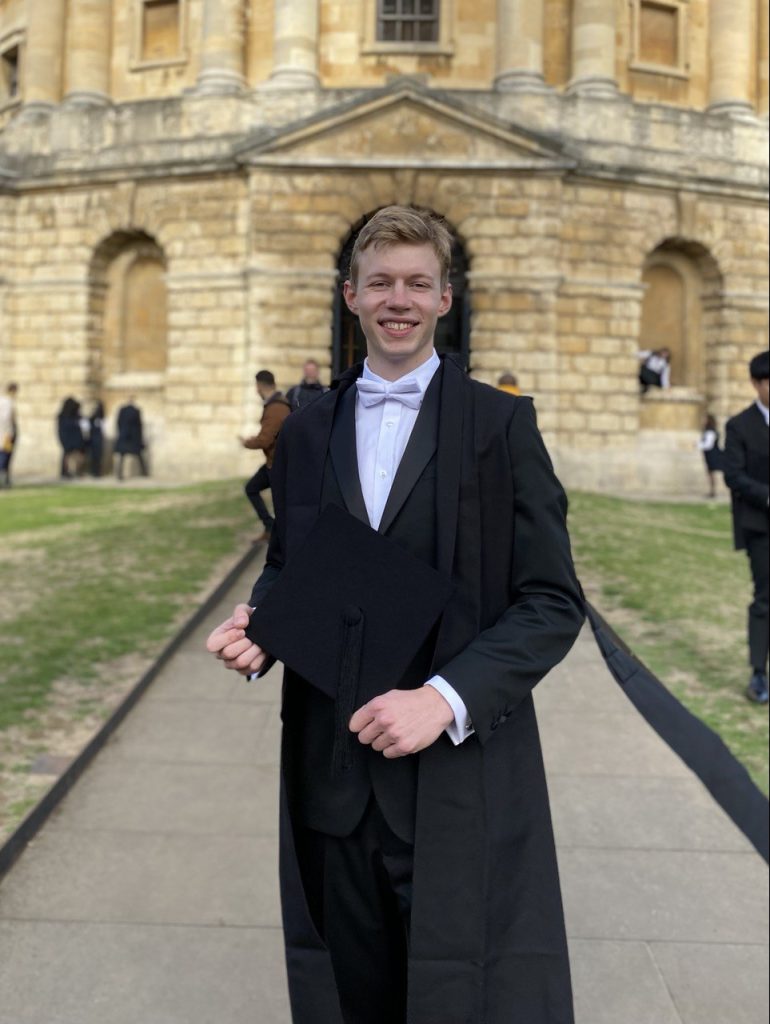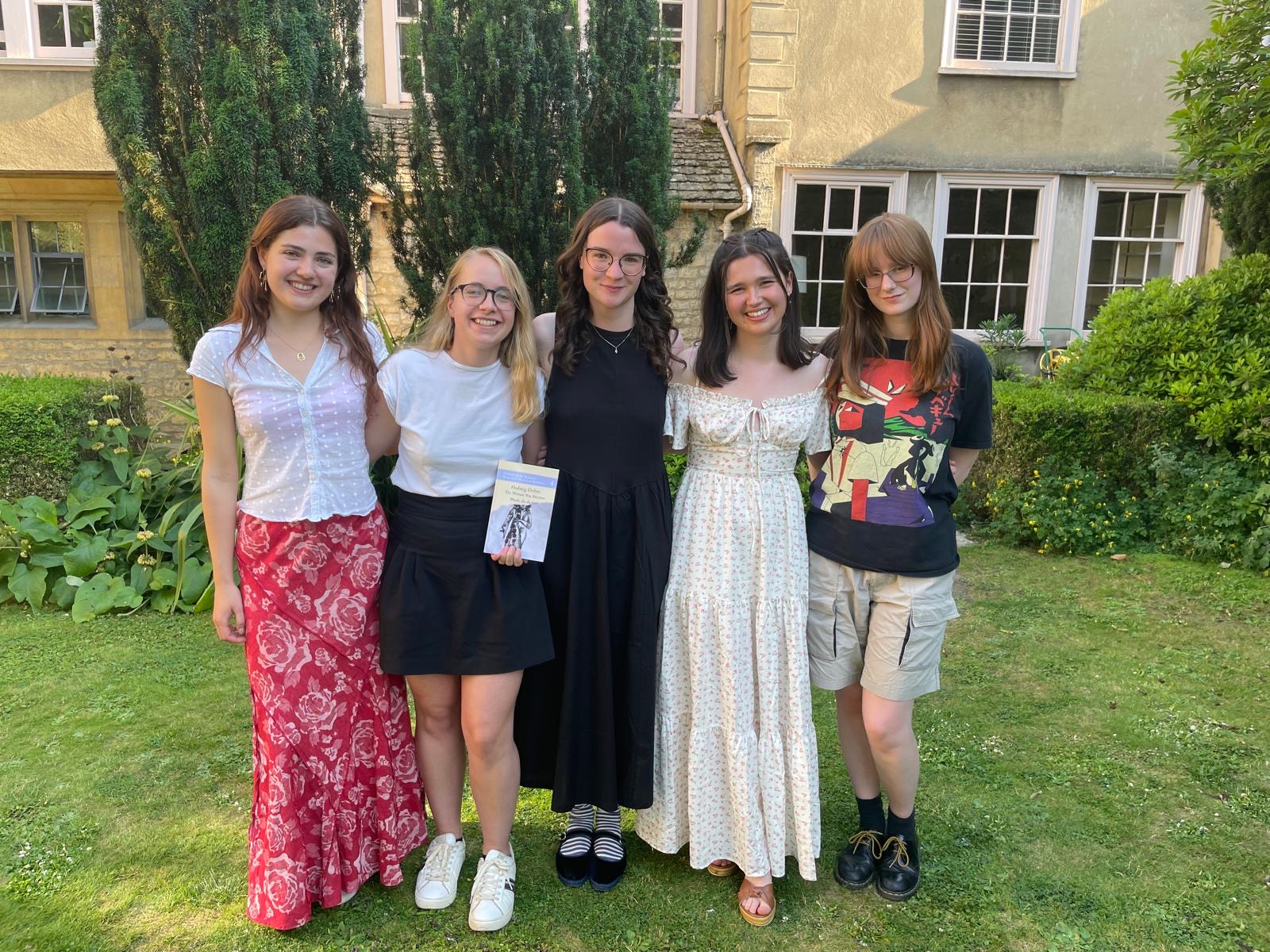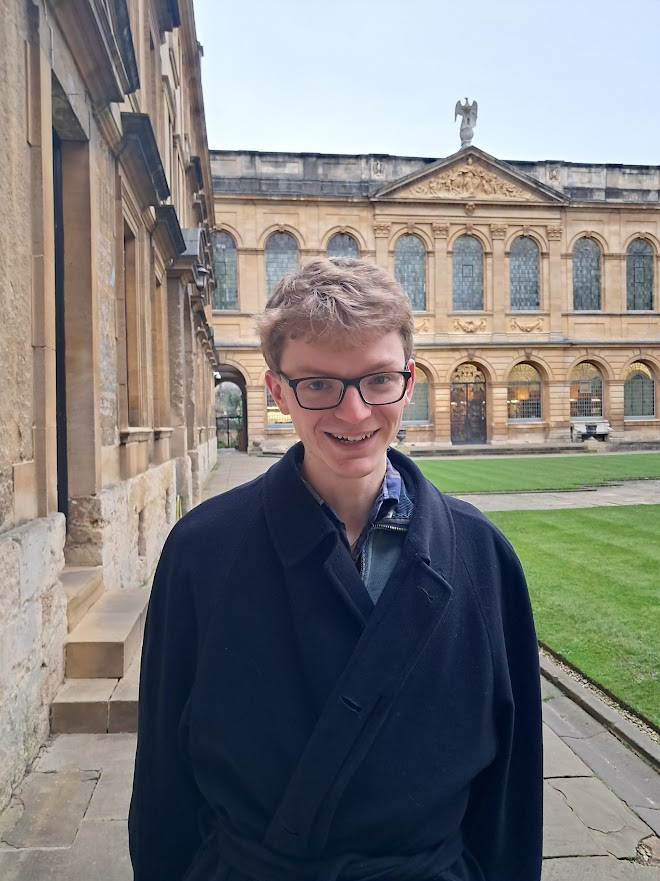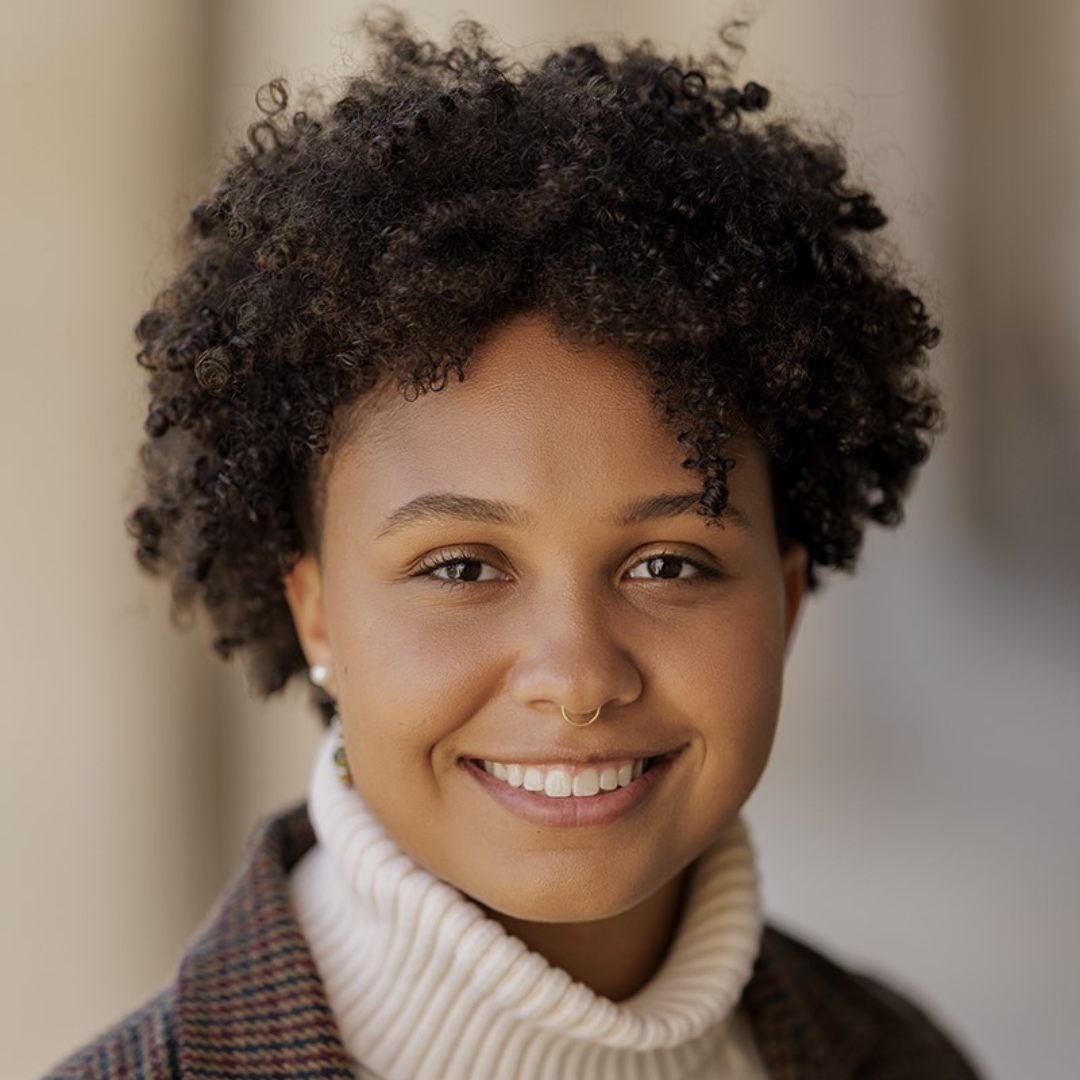Established in 2001, the Clarendon Fund has to date supported over 2,500 scholars who have made notable contributions to Oxford’s research and intellectual vigour.
Tomas Tokovyi, a Clarendon Scholar reading his MSc in Genomic Medicine at Queen’s shares his story from growing up in Ukraine, to studying at Oxford now. Tomas has been selected as the 2023-24 External Secretary for the Clarendon Scholars’ Council Committee.
As a typical Ukrainian child, I spent most of my free time playing outdoors and socialising – football was a huge passion of mine. I grew up specialising in learning foreign languages in Bila Tserkva and at the age of 15, I was one of three students from Ukraine to win a full academic scholarship to study A-levels in the UK. Realising I was not going to become the next Andriy Shevchenko in football or the next Steve Kaufmann in foreign languages, I decided to study sciences (Biology, Chemistry, Maths, and Further Maths) at school.
The war in Ukraine
I went on to the University of Bristol to study for my Bachelor’s in Biochemistry and was there on 24 February 2022. My family is currently based in Bila Tserkva, a city in the Kyiv region and also my hometown. Since the start of the full-scale invasion, Bila Tserkva has been at times bombarded by Russian military forces and targeted by deadly drones. Unfortunately for my family, these shellings happened very close to our house as we live in the vicinity of the military base.
Despite the difficult situation back home, I managed to graduate as the top student in my class of 119 people. For the past nine months, I have been doing everything I can to support my family and the Ukrainian community in the UK and Ukraine. I have led different large-scale fundraising events, protests, and educational projects all across the UK and I am not planning to stop!
Coming to Oxford
I was always fascinated by the incredible translational opportunities Biology and Chemistry could provide – anything from agricultural biotechnology to drug development and gene therapies. Thinking about my future, I decided that science would be the best way I could contribute to society.
My subject here at Oxford lies on the interface of Biology and Data Science – I study what our genes can tell us about our health and the risks of getting different diseases (for example, DNA tests like 23andMe).
Life as an Oxford student
Oxford challenges me both academically and socially and I absolutely love it! My master’s is a taught course, so a large proportion of my time (basically 9am-5pm) I spend in my Department (the Wellcome Centre for Human Genetics at the Nuffield Department of Clinical Medicine) in Headington. The cycle up Headington Hill in the morning is definitely something that keeps me fit every day (whether I want it or not).
The social life in Oxford is incredibly vibrant and picturesque! I am part of many different societies and communities, including the Clarendon Scholars’ Association, Oxford Ukrainian Society, Oxford University Biotech Society, Oxford Founders Society, and Queen’s College Boat Club (although it has recently been quite challenging to balance rowing and all the academic events and conferences).
Oxford challenges me both academically and socially and I absolutely love it!
What are you involved in outside of your studies?
As much as I am passionate about biotechnology, what I ultimately care about the most is people. Prior to the war I had already been involved in programmes teaching in economically deprived areas of Bristol. However, when Russia invaded Ukraine, I became especially active.
At the University of Bristol, I gave lectures about Ukrainian history that were attended by hundreds of students and academics. At the University of Oxford, I helped to organise the first-ever festival of Ukrainian culture, which attracted over 10,000 visitors and raised over £110,000 in donations for Ukraine.
I also became the Vice-President of the Ukrainian Society in Oxford and attended the first-ever conference of Ukrainian students in Manchester, joined by 18 universities from across the UK. In partnership with the Ukrainian Embassy in the UK, my friends and I are starting the largest national fundraiser in the UK to buy power generators for Ukrainian cities — including Bila Tserkva, my hometown, which are suffering from power outages due to Russia’s bombardments of civilian infrastructure.
My efforts have been nationally recognised with news articles appearing in the BBC, The Independent and others. Recently, the University of Bristol awarded me the Good Citizen Award. I also had the opportunity to recently meet the First Lady of Ukraine to talk to her about our projects in Oxford.
As the 2023 External Secretary for the Clarendon Scholars’ Council, I will be responsible for maintaining and cultivating relationships with external (non-Oxford) and internal (Oxford) scholarship groups, organisations, and companies for the benefit of the Clarendon Family.
Looking to the future
My main goal for the near future is to support my home country’s growth and reconstruction. Although Ukraine has urgent humanitarian needs, it will also require a long-term strategy to prosper. I believe that bio-entrepreneurship is a very promising field in Ukraine, albeit only emerging and struggling due to a lack of equipment, mentoring, and funding.
I would like to develop a strong biotech culture in Ukraine by establishing bio-incubators as well as initiating long-lasting partnerships with British universities and biotech industries. Together with the Oxford University Ukrainian society, we have already started exploring partnerships with Oxford University Innovation and Bioescalator. I hope to help Ukrainian-based start-ups in various industries including defence, education, health, science, and IT.
We also have goals for cooperation between the UK and Ukraine in the digital sector, to provide the exchange of knowledge and expertise of talented IT minds from both countries in line with the Government’s Digital Strategy.
Stay tuned for more!
Follow Tomas’ LinkedIn to keep up to date on his latest activity.
About the Clarendon Fund
Oxford’s highly competitive and largest graduate scholarship scheme, the Clarendon Fund Scholarship programme, brings together core funding generated for the University by Oxford University Press with partnership funding from Oxford’s departments, faculties and colleges, as well as a number of centrally administered awards from external partners to maximise the number of new Clarendon Scholarships offered each year.
As one of the largest and most competitive scholarships, together with Oxford’s colleges and Oxford University Press, the University is able to fulfil even more Clarendon scholarship places, welcoming 200 students this year. This autumn, the Clarendon Fund welcomed 234 new scholars, the largest cohort ever, bringing the number of on-course scholars to over 550.



